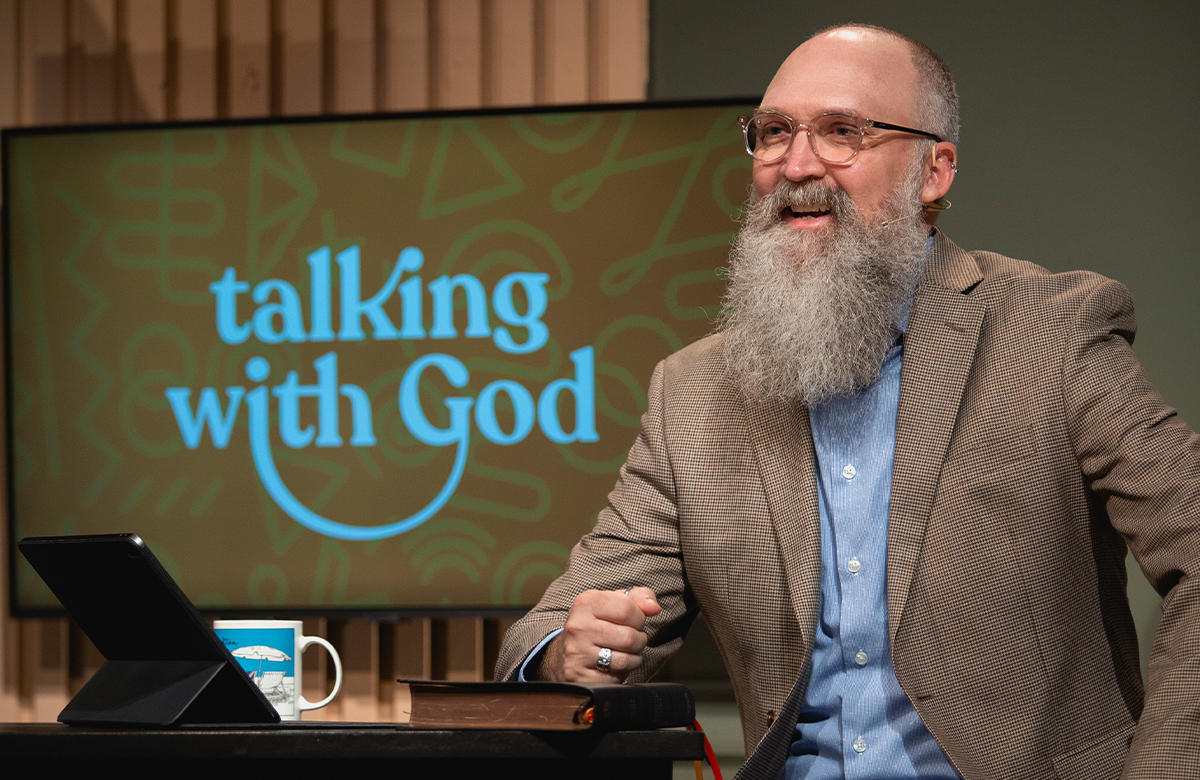
1 Timothy
1 Timothy
Who wrote it?
1 Timothy was written by the apostle Paul (1 Timothy 1:1).
When(ish) was it written?
1 Timothy was written in AD 62-66.
Why was it written?
Paul wrote to Timothy to encourage him in his responsibility for overseeing the work of the Ephesian church, and possibly the other churches in the province of Asia (1 Timothy 1:3). This letter lays the foundation for ordaining elders (1 Timothy 3:1-7), and provides guidance for ordaining people into offices of the church (1 Timothy 3:8-13). In essence, 1 Timothy is a leadership manual for church organization and administration.
Some Key Verses
[quote] For there is one God, and there is one mediator between God and men, the man Christ Jesus.
– 1 Timothy 2:5 [/quote]
[quote] I do not permit a woman to teach or to exercise authority over a man; rather, she is to remain quiet.
– 1 Timothy 2:12 [/quote]
[quote] The saying is trustworthy: If anyone aspires to the office of overseer, he desires a noble task. Therefore an overseer must be above reproach, the husband of one wife, sober-minded, self-controlled, respectable, hospitable, able to teach, not a drunkard, not violent but gentle, not quarrelsome, not a lover of money.
– 1 Timothy 3:1-3 [/quote]
[quote] The saying is trustworthy and deserving of full acceptance. For to this end we toil and strive, because we have our hope set on the living God, who is the Savior of all people, especially of those who believe.
– 1 Timothy 4:9-10 [/quote]
[quote] Fight the good fight of the faith. Take hold of the eternal life to which you were called and about which you made the good confession in the presence of many witnesses.
– 1 Timothy 6:12 [/quote]
A Quick Summary
This is the first letter Paul wrote to Timothy, a young pastor who had been a help to Paul in his work. Though Timothy was a Greek, his mother was Jewish and his father was Greek. Paul was more than just a mentor and leader to Timothy, he was like a father to him, and Timothy was like a son to Paul (1 Timothy 1:2). Paul begins the letter by urging Timothy to be on guard for false teachers and false doctrine. However, much of the letter deals with pastoral conduct. Paul instructs Timothy in worship (chapter 2) and developing mature leaders for the church (chapter 3). Most of the letter deals with pastoral conduct, warnings about false teachers, and the church’s responsibility toward single members, widows, elders, and slaves. All throughout the letter, Paul encourages Timothy to stand firm, to persevere, and to remain true to his calling.
Old Testament Ties
An interesting link to the Old Testament in the book of 1 Timothy is Paul’s citation of the basis for considering church elders to be worthy of “double honor,” and deserving of respect when it comes to being accused of wrongdoing (1 Timothy 5:17-19). Deuteronomy 24:15; 25:4; and Leviticus 19:13 all speak of the necessity to pay a worker what he has earned and to do it in a timely manner. Part of the Mosaic Law demanded that two or three witnesses were necessary to bring an accusation against a man (Deuteronomy 19:15). The Jewish Christians in the churches Timothy pastored would have been well aware of these Old Testament connections.
What does this mean?
Jesus Christ is presented by Paul as the mediator between God and man (1 Timothy 2:5), the Savior to all who believe in Him. He is Lord of the church, and Timothy serves Him by pastoring His church. Thus, we find the main application of Paul’s first letter to his “son in the faith.” Paul instructs Timothy on matters of church doctrine, church leadership, and church administration. We can use those same instructions in governing our local assembly today. Likewise, the work and ministry of a pastor, the qualifications for an elder, and the qualifications of a deacon are just as important and pertinent today as they were in Timothy’s day. Paul’s first letter to Timothy amounts to an instruction book on leading, administrating, and pastoring the local church. The instructions in this letter apply to any leader or prospective leader of Christ’s church and are equally relevant today as they were in Paul’s day. For those not called into leadership roles in their church, the book is still practical. Every follower must contend for the faith and avoid false teaching. Every follower must stand firm and persevere.
Discussion Questions
- Take a few minutes to read aloud the Scripture from 1 Timothy 1:3-11, 2:1-6, 4:1-3, 4:7, 4:11, 4:16, 6:2-5. What verses or ideas stand out to you from this passage? What questions do you have? What “next step” are you considering as a result of your interaction with God’s Word?
- What is a myth? What are some some myths that were widely held at one point in history that we now know to be untrue? What are some myths (a belief that is widely held, but is actually not true) that exist in our culture today? How about myths within American Christianity?
- What are your observations of our culture when it comes to sexual identity and sexual expression? In light of I Timothy 1:8-10, how do these beliefs and practices compare with the things Paul describes as “contrary to sound doctrine?”
- Timothy was “looked down upon” because of his youth. Have you ever been “looked down upon?” How do you typically respond? Are you defensive or defiant? How does Paul’s instruction to Timothy (that he should sex an example in speech, conduct, love, faith, and purity) provide a framework for how to respond in the future?
- Have you believed the myth that “talking about sin is hateful?” Is there an example in your own life when someone has loved you enough to talk with you about the sin in your life? How can we seek to be full of both grace and truth (see John 1:14) as we share the Gospel with others?

























